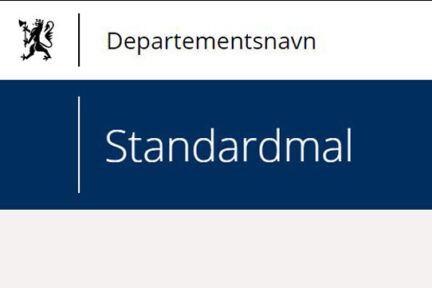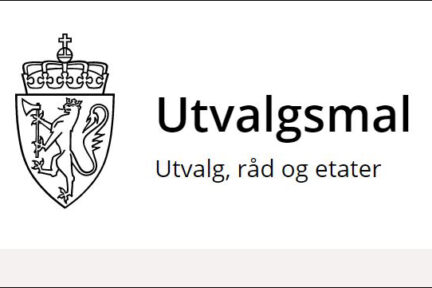I vår WordPress-løsning tilbyr vi
- Fleksibelt og responsivt design
- Enkel redigering og publisering i WordPress
- Mulighet for flere språkversjoner
- Universell utforming (WCAG 2.0 AA)
- Statistikk for bruk av nettstedet
- Høy sikkerhet
- Support når du trenger det
Velg mal for nettstedet ditt
Malene ivaretar departementenes publiseringsbehov og velges ut fra krav til design, dialog, varighet, publisering og profilering av avsender. Se noen av nettstedene våre her.
Tilgjengelighetserklæring
Fra 1. februar 2023 må nettstedet ha en tilgjengelighetserklæring.

FLEKSIBEL MAL
Denne malen brukes for nettsteder som skal publisere under eget navn. Departementet er underordnet som avsender.
Fleksibel mal brukes når det er spesielle krav til design og visuelt uttrykk. Malen gir tilgang til alle moduler.

STANDARDMAL
Denne malen brukes når nettsteder skal ha et offisielt preg og visuelt slektskap til regjeringen.no. Departementet er tydelig avsender.
Malen baserer seg på designelementer fra regjeringen.no. Denne malen har tilgang til alle moduler.
Se nettsteder basert på standardmal

UTVALGSMAL
Denne malen brukes når utvalg, råd, kommisjoner og underliggende etater er avsender.
Malen bruker riksvåpenet i toppfeltet og har et begrenset utvalg av moduler;
Enkle innlegg og Personer
Les mer
Kom igang
Vi hjelper deg med å sette opp nettstedet ditt. Les alt du trenger for å komme i gang.
Krav til publisert tilgjengelighetserklæring fra UU-tilsynet
Alle nettsteder med eget domene, for eksempel .no eller .org, må teste nettstedet, fylle ut og publisere en tilgjengelighetserklæring om universell utforming.
Skriv for nett
Å skrive for nett er en egen sjanger. Vi ønsker at du som lager innhold har fokus på god struktur, universell utforming og klarspråk.

